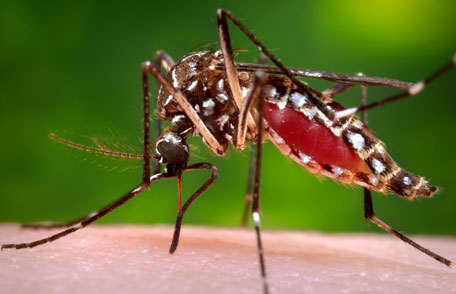What would you like to do?

Lubbock, TX
West Nile Virus Confirmed in Lubbock
The City of Lubbock Health Department has confirmed West Nile Virus (WNV) in Lubbock. Each year vector control places mosquito traps throughout the county. A laboratory then tests the mosquitos for disease. The laboratory notified the health department that some of the mosquitoes tested positive for WNV. Vector control will increase spraying in the community targeting areas around positive traps. Everyone is encouraged to take steps to reduce mosquito bites.
Since WNV is a disease of birds, humans are exposed to the virus when they are bitten by mosquitoes that fed on infected birds. The infected mosquitoes become the link (vector) that spreads the disease from birds to humans through a bite. WNV cannot be spread person-to-person.
Symptoms of West Nile Virus include headache, fever, muscle and joint aches, nausea and fatigue. People with West Nile fever typically recover on their own. There is a more serious form of the illness, West Nile Neuroinvasive disease, which may have additional symptoms of neck stiffness, stupor, disorientation, coma, tremors, convulsions, muscle weakness and paralysis. Up to 80 percent of people infected with the virus will have no symptoms.
There are no medications to treat or vaccines to prevent West Nile Virus infection. People over 50 years old and those with other health issues are at a higher risk of becoming seriously ill. If people have symptoms and suspect West Nile virus infection, they should contact their healthcare provider.
It is important for individuals to continue to take steps to avoid mosquito bites. These include:
- Wearing an EPA registered insect repellant
- Covering up with long-sleeved shirts and long pants
- Keeping mosquitoes out of living areas by using air conditioning or intact window screens
- Limiting outdoor activities during peak mosquito times
- Dumping standing water around your home
For more information on West Nile virus visit the CDC website at:http://www.cdc.gov/westnile/index.html
